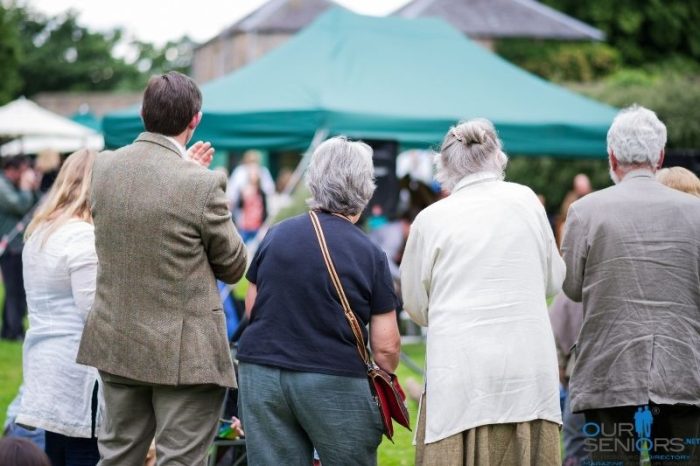Seniors that stay socially active experience several benefits that enrich their lives, including better cognitive function, boosted immune system, and improved mental and physical health. Social activities, however, have been a challenge in the last year and a half because of Covid-19 quarantine protocols. This has time has been particularly difficult for seniors because quarantine has brought feelings of isolation, frustration, and stress among thousands.
As more people are vaccinated and local rules and regulations regarding social distancing and group gatherings are lifted, seniors are encouraged to re-enter their communities and ways that are healthy to them and others. Restarting community events such as group exercise classes, walking clubs, book clubs, gardening clubs and art classes are all fun ways to reunite with neighbors and safely boost mental and physical health.
What You Need to Consider Before Restarting Community Events
Consider the level of risk when preparing for or attending a community event. While many people have been fully vaccinated, there are still thousands of people that have not received the vaccine for personal reasons. You need to keep this in mind if you are going to be a part of the community that is moving toward bringing things back to normalcy.
It’s still a good idea to avoid events where large amounts of people will be in attendance but it’s okay to enjoy events where there are ample safety measures to lower the risk of transmitting or contracting Covid-19. Community events will bring people from multiple households into private or public spaces, and you need to know what to expect and be prepared for. Specifically, you should be aware of:
Number of COVID-19 Cases in Your Community
Checking your local news daily is a great way of learning whether Covid-19 cases are high, medium, or low relative to the size of the population. You can also check with your local health department’s website for updated numbers. If the community event you are attending is in a high- or medium-risk area, you should consider avoiding it altogether.
Setting and Length of the Community Event
Indoor community events pose a greater risk than outdoor events because these places may have poor ventilation. You may also have to stand or sit much closer to people than the recommended 6 feet. The length of the event is also something you should pay attention to. According to the CDC, being within 6 feet of someone for more than 15 minutes increases the risk of transmitting or contracting Covid-19. You should always be aware of your surroundings, but you need to be more diligent when you attend long events.
Number of People Expected at the Event
Community events with more attendees will increase your chances of exposure to Covid-19. Organizers of community events should take safety measures and determine the number of attendees allowed based on whether it will be possible for attendees from different houses and stay at least 6 feet apart for extended periods. Physical distancing is still one of the most effective ways of reducing the risk of transmission. Organizers of community events should practice blocking off seats, marking spaces that are 6 feet apart, and modifying room layouts.
Types of Activities that Will Be Held at the Event
Finally, consider what types of activities people will be participating in at the event. If there is a lot of engagement and interaction between people from different households can increase risk. We have provided some examples of events that are considered safer than say a concert or a dance. You need to keep the ability to stay physically distant from others in mind. If you believe the amount of engagement and interaction will be high, you should avoid attending that event.
No matter what type of community event you attend, you need to practice the appropriate prevention matters. You are still at risk of transmitting and contracting the disease, regardless of your vaccination status. Even if the event doesn’t require you to practice safety guidelines, follow these recommendations to stay healthy:
- Avoid crowded or poorly ventilated areas
- Keep at least 6 feet from other people
- Wear a mask when you are indoors
- Cover coughs and sneezed with bent elbow or tissues
- Wash your hands frequently

